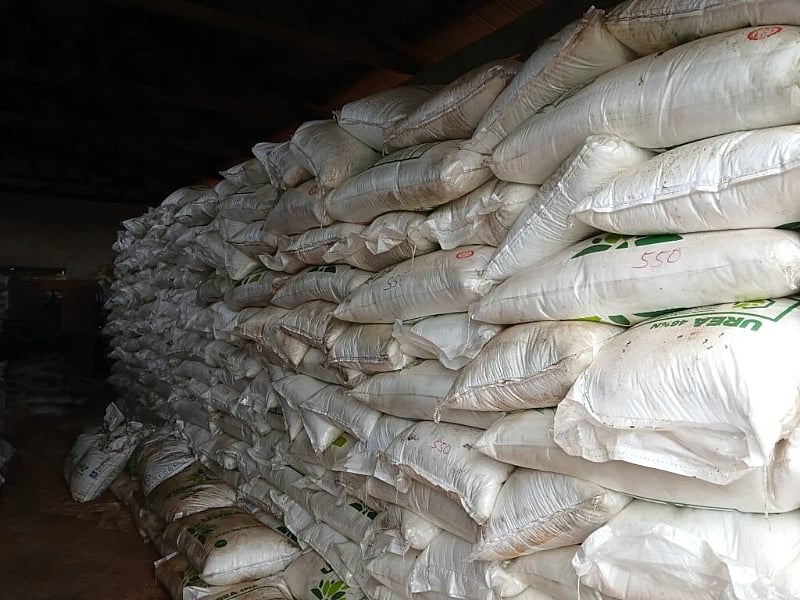In response to the devastating effects of a recent prolonged dry spell that disrupted farming activities in the Upper West Region, the Nadowli-Kaleo District Assembly has rolled out a targeted relief initiative to support local farmers.
The Assembly has commenced the distribution of fertiliser and high-yield maize seeds to farmer cooperatives across the district to restore agricultural productivity and mitigate food insecurity.
This timely intervention is part of the government’s broader strategy under the Feed Ghana Programme, an initiative aimed at revitalising the agriculture sector through strategic input support, extension services, and market linkages. The programme is designed to boost local food production, reduce dependency on imports, and promote climate-smart and sustainable farming practices.
Speaking at one of the distribution centres, the District Chief Executive (DCE), Hon. Madam Mary Haruna, emphasised the government’s commitment to ensuring that no genuine farmer is left behind. She noted that although the distribution is ongoing and not all farmers have received their share yet, the Assembly is working diligently to reach every eligible cooperative.
“We know the pain many of our farmers have gone through due to the recent drought. That is why the government is stepping in to cushion the impact,” Madam Haruna stated. “This support is not a one-off event. It’s tied to a long-term vision to strengthen our local agricultural base and ensure food security for our people.”
She also urged farmers to register under the Feed Ghana Programme to benefit from future inputs and technical support. Registration, she stressed, will enable the district to effectively track input distribution, monitor farm performance, and provide continuous assistance. “The Feed Ghana Programme is a golden opportunity for all serious farmers in the district,” she added. “Only registered farmer cooperatives will benefit, so we urge you to organise yourselves and cooperate with the agriculture extension officers.”
Hon. Madam Haruna further cautioned non-farmers and opportunists against collecting the subsidised inputs, warning that such actions undermine the purpose of the intervention. “If you know you don’t have a farm or are not engaged in animal or poultry rearing, please do not come forward for the items. These are strictly meant for genuine, active farmers. We are determined to protect this process from abuse so that the right people benefit,” she warned.
The District Agriculture Department, working closely with extension officers, has been tasked to ensure fairness, transparency, and technical guidance in the distribution and application of the inputs. The Assembly is also planning to organise training and education sessions to farmers on appropriate fertiliser application methods, improved seed planting techniques, and climate adaptation strategies to maximise yield and build resilience against future climatic shocks.
Community leaders and opinion influencers in the district have praised the Assembly for this initiative, noting that it offers renewed hope to farming households whose crops were lost earlier in the season.
As the district intensifies its efforts to recover from the climate-induced setbacks, farmers are being encouraged to take full advantage of this support, maintain close contact with agricultural extension officers, and share feedback to improve the effectiveness of the interventions.
The initiative not only highlights the government’s responsiveness to the needs of rural farmers but also underscores the importance of partnerships between local authorities, farmer groups, and agricultural experts in building a resilient food system for Ghana.


